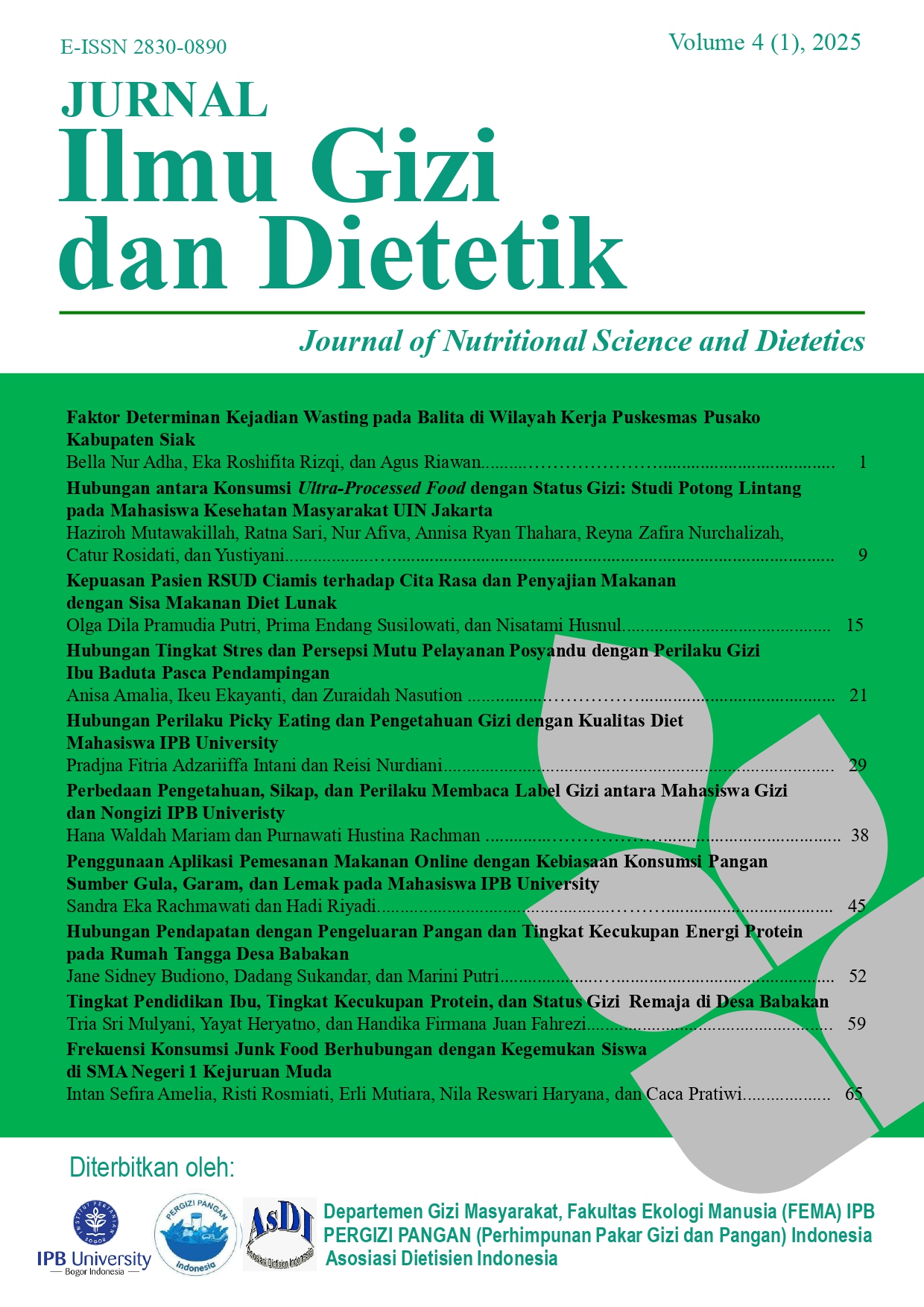Hubungan antara Konsumsi Ultra-Processed Food dengan Status Gizi: Studi Potong Lintang pada Mahasiswa Kesehatan Masyarakat UIN Jakarta The Relationship between Ultra-Processed Food Consumption and Nutritional Status: A Cross-Sectional Study on Public Health Students at UIN Jakarta
Abstract
The prevalence of obesity in Indonesia continues to increase, including among individuals aged >18 years, with a rise of 1.6% in 2023 compared to 2018. University students are a vulnerable group to nutritional problems due to unhealthy dietary patterns, including the consumption of ultra-processed food (UPF). This study aims to determine the relationship between UPF consumption and nutritional status among students of the Public Health Study Program, Faculty of Health Sciences, UIN Syarif Hidayatullah Jakarta, in 2024. This research employs a cross-sectional study design conducted from November to December 2024, with 120 subjects selected using a simple random sampling technique. The UPF consumption variable was measured using a food frequency questionnaire (FFQ), while the nutritional status variable was assessed based on the body mass index (BMI) score calculated from the subjects' height and weight. The analysis used Spearman's correlation test. The average UPF consumption score among subjects was six times per day. A total of 53.2% of subjects stated that access to UPF in their residential area was very easy, and 68.9% of subjects purchased UPF due to its convenience and quick preparation. The Spearman correlation test showed that UPF consumption had no significant relationship with students' nutritional status (p-value=0.160; r=-0.129).

